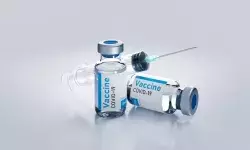Industry News

WASHINGTON, DC - Today, the American Society of Health-System Pharmacists (ASHP), in partnership with the American Pharmacists Association (APhA), released the following statement on establishing Pharmacy Workforce Suicide Awareness Day to be recognized annually on September 20 as part of September's Suicide Prevention Month.
According to the latest available data from the Centers for Disease Control and Prevention, suicide was the eleventh leading cause of death for Americans as of 2021. Further, a recent study published by JAPhA showed that pharmacists are at an increased risk of death by suicide when compared to the general public. According to that study, the suicide rate among pharmacists in the United States is 20 per 100,000, which is higher than the general population rate of 12 per 100,000.
Establishing a Pharmacy Workforce Suicide Awareness Day is an effort to increase awareness and discussion around a highly stigmatized topic that disproportionately affects healthcare professionals, including the pharmacy workforce. Recognizing this day will support pharmacists, pharmacy residents, student pharmacists, and pharmacy technicians by providing resources to prevent suicide and manage mental health conditions.
"Members of the pharmacy workforce encounter unique stressors throughout their education, training, and careers, which places them and other healthcare professionals at higher risk of experiencing occupational burnout, moral injury, and mental health crises," said Paul W. Abramowitz, PharmD, ScD (Hon), FASHP, CEO of ASHP. "Death by suicide is a tragic but preventable loss to individuals, organizations, and our profession. By collectively raising awareness of this grave issue, we are calling on members of our profession to support each other by urging conversation, decreasing stigma, recognizing warning signs, and intervening when necessary. ASHP is proud to partner with APhA and other pharmacy organizations on establishing Pharmacy Workforce Suicide Awareness Day and stands committed to supporting our colleagues and the future of our profession by working together to reach zero deaths by suicide."
"I am delighted that we have been able to partner with ASHP to mark this day and bring recognition to this critical problem. Death by suicide among pharmacists occurs at nearly twice the rate as non-pharmacists, a statistic that is wholly unacceptable and completely heartbreaking," said Michael D. Hogue, PharmD, FAPhA, FNAP, FFIP, executive vice president and CEO of APhA. "I'm proud of the work we have been able to do together to establish this day of recognition and to partner with so many other organizations who recognize the pressing need to address the root causes of work-related burnout and hopelessness resulting in suicide. Everyone at Team APhA is committed to recognizing mental health concerns and having the conversations that will help prevent additional deaths by suicide and end the well-being crisis."
More information and resources to raise awareness of, prevent, and respond to suicide can be found on ASHP's website here and on APhA's website here.
Organizations that are interested in supporting these efforts are encouraged to sign up to be acknowledged as an organizational sponsor of Pharmacy Workforce Suicide Awareness Day.
If you are feeling alone and having thoughts of suicide—whether or not you are in crisis—or know someone who is, talk to someone you can trust by calling or texting "988," the Suicide & Crisis Lifeline.

In 2019, Sutter Coast Hospital's compounding pharmacy in Crescent City, California, came under scrutiny by the California State Board of Pharmacy, resulting in a recent imposition of a three-year probation. This development followed a routine inspection conducted in January 2019, during which a board investigator identified what were described as "major deficiencies" concerning staff training and knowledge in the field of compounding pharmaceuticals.
The investigation brought to light a range of concerns related to the training of pharmacy personnel. It was discovered that the pharmacist in charge, along with her team, had not completed the necessary training required prior to engaging in compounding activities. These deficiencies extended to critical areas such as aseptic hand washing, garbing, proper cleaning of controlled environments, and the accurate documentation of drug compounds. Inspectors were particularly alarmed by the lack of knowledge demonstrated by employees in these fundamental regulatory aspects.
Another noteworthy issue that came to light was the inadequacy of the facilities themselves. In accordance with pharmacy law, a sink with running water is required within the "parenteral solution compounding area or adjacent to it." However, the sole sink available was located in a restroom, falling short of these legal requirements. Furthermore, the inspectors observed staff members failing to adhere to appropriate clothing standards and noted unsanitary conditions within the pharmacy.
As a consequence of these findings, Sutter Coast Hospital's compounding facility was placed on probation starting from July 23. This disciplinary action imposes certain obligations on the hospital, including unannounced visits by the pharmacy board and quarterly reporting to the state. Additionally, the hospital is required to provide five hours of compounding education for pharmacy technicians and pay an undisclosed fine as part of the probationary measures.
It is worth noting that subsequent to the inspection, the pharmacy has worked closely with the California Board of Pharmacy to address and rectify the violations identified. A spokesperson for Sutter Health, based in Sacramento, expressed their commitment to the highest standards of patient care and community health.
"We have partnered with the California Board of Pharmacy and have made significant investments at Sutter Coast's compounding facility," the spokesperson stated. "These recent upgrades exceed all sterile compounding standards for hazardous drugs, which provide protections for employees and patients. Sutter Health remains committed to providing our patients excellent and quality care and supporting overall community health."
In light of these corrective measures and the hospital's commitment to compliance, it is anticipated that the probation period will serve as an opportunity for Sutter Coast Hospital to enhance its compounding pharmacy operations and ensure the highest level of safety and quality in pharmaceutical compounding.

Substance use disorder has far-reaching impacts across society, and healthcare workers are not immune. In some cases, healthcare worker addiction can lead them to use prescription drugs intended for patients or steal them to be sold for personal benefit. A recent survey sponsored by Invistics, acquired by Wolters Kluwer Health earlier this year, found that despite 98% of healthcare executives agreeing that drug diversion occurs in hospitals, nearly four in five healthcare executives surveyed (79%) believe that most drug diversion goes undetected.
The International Health Facility Diversion Association estimates that at least 37,000 diversion incidents occur in U.S. facilities each year, and this number is likely underreported.1 According to the Wolters Kluwer Invistics survey, “The State of Drug Diversion 2023 Report,” only 40% of executives are very confident in the efficacy of their drug diversion detection programs, with a majority (67%) of executives planning to strengthen their drug diversion efforts in 2023.
Improving inconsistent drug diversion processes
Drug diversion detection has historically been a manual and time intensive process, with 71% of respondents reporting that their team spends eight or more hours on each investigation. Hospitals and ambulatory settings also struggle with consistency when it comes to managing detection programs. When questioned about the impact of the COVID-19 pandemic on their drug diversion programs, 69% of respondents pointed to the increased presence of floating staff or contract workers as the primary factor that made drug diversion detection more challenging.
“With staff shortages and use of contract workers at an all-time high, hospitals may see inconsistency in their drug diversion detection efforts,” said Karen Kobelski, Vice President and General Manager of Clinical Surveillance Compliance & Data Solutions, Wolters Kluwer, Health. “Given the risks to patient safety and clinical teams, as well as the potential reputational and financial impact on the hospital itself, hospital leadership should consider how sophisticated technology can keep these programs running smoothly. As one of our respondents commented, ‘If you do not have any drug diversion, then you are not looking hard enough.’
Artificial intelligence (AI) represents a significant opportunity to improve drug diversion detection efforts across a hospital or health system. By monitoring patterns in data over time and across multiple hospital systems, programs incorporating advanced technologies can support increased hospital detection of diversion and improved patient safety.
Embracing AI for drug diversion detection
Recognizing the significant benefits of AI in diversion detection, more organizations have taken the next step forward in leveraging the latest cutting-edge technology to tackle their institutions’ diversion detection gaps. Since the initial survey in 2019, hospitals that report using machine learning to detect patterns of diversion and automatically flag potential cases have nearly doubled (29% to 56%). These facilities are also more confident in their drug diversion programs, with more than half of executives who use AI tools (53%) reporting they are very confident in the efficacy of their diversion detection efforts.
“Hospitals don’t always have the staff to dedicate to an ongoing diversion detection program as they balance more acute patient needs. AI-powered tools continually running in the background enable healthcare providers and leaders to feel more confident they are able to keep their patients and staff safe from diversion,” Ms. Kobelski continued. “AI-based diversion detection programs can do the hard work of sifting through mountains of data to find suspect cases so resource-strapped hospitals can run an effective program and ensure diversion is detected.”

Chicago, IL– Today, representatives from Surfacide announced an in-kind donation of their industry-leading infection prevention technology to St. Bernard Hospital to help the safety net hospital maintain its high standards for patient safety.
Just as the hospital kicks-off special activities for Environmental Services Week, Surfacide will donate their Helios® Disinfection system – a trio of light-emitting robots that significantly reduce microorganisms on colonized hard surfaces using chemical-free UV-C energy.
St. Bernard Hospital will now be amongst top hospitals in Illinois including Northwestern Medicine and University of Chicago Medicine using the Surfacide Helios® System and the only safety net hospital in the state to use the equipment.
The multiple emitter system will be deployed across key units throughout the hospital including the Emergency Department, Pharmacy, ICU and OR units. St. Bernard Hospital staff are currently undergoing training on proper use of the equipment.
“We are incredibly inspired by St. Bernard’s commitment to patient safety and their journey to achieve an A rating by LeapFrog” said Gunner Lyslo, Founder and CEO of Surfacide. “We feel strongly that all patients deserve the same standards of safety and care regardless of their economic circumstances. It is our delight to provide this critical investment to an institution where our technology’s impact will go far.”
The Surfacide technology donation comes during a pivotal time in St. Bernard Hospital’s patient safety journey as it has worked to improve its patient safety rating by the Leapfrog Hospital Grades Survey from an ‘F’ to an ‘A’ over the past three years.
“We are proud that our patient safety efforts are being recognized in the heathcare community,” said Michael Richardson, St. Bernard’s Chief Quality and Patient Safety Officer. “We are grateful for Surfacide’s donation and look forward to using the technology throughout our hospital as we continue to make improvements to our care.”

CHICAGO, IL - AbbVie (NYSE: ABBV) today announced top-line results from the Phase 3 SEQUENCE clinical trial evaluating risankizumab (SKYRIZI®, 600 mg intravenous [IV] induction at week 0, 4 and 8 and 360 mg subcutaneous injection [SC] starting at week 12 and every 8 weeks thereafter) versus ustekinumab (STELARA®, IV dose at week 0 and 90 mg SC every 8 weeks thereafter) through week 48 in patients with moderately to severely active Crohn's disease who have failed one or more anti-TNFs.
The results of the first primary endpoint, clinical remission (per Crohn's Disease Activity Index [CDAI], defined as CDAI <150) at week 24, met non-inferiority of risankizumab versus ustekinumab (non-inferiority margin of 10%); remission rates were 59% in risankizumab group and 40% in ustekinumab group.1
The results of the second primary endpoint, endoscopic remission (SES-CD ≤4 and at least a 2-point reduction versus baseline and no sub-score greater than 1 in any individual component) at week 48 met superiority of risankizumab versus ustekinumab; remission rates were 32% in risankizumab group and 16% in ustekinumab group (p <0.0001).1
"We are encouraged by these results, which demonstrate the impact SKYRIZI can have in helping patients achieve both clinical and endoscopic remission," said Roopal Thakkar, senior vice president, development and regulatory affairs and chief medical officer, AbbVie. "These head-to-head data reinforce SKYRIZI is an effective treatment option for patients living with Crohn's disease."
The safety profile of risankizumab in the SEQUENCE study was consistent with the known safety profile of risankizumab, with no new safety risks observed.1 The most common adverse events were COVID-19, headache and Crohn's disease for the risankizumab group and COVID-19, Crohn's disease, and arthralgia for the ustekinumab group.1
"Head-to-head studies like the SEQUENCE study are important in helping physicians understand differences in therapies and define treatment algorithms in clinical practice," said Laurent Peyrin-Biroulet, M.D., Ph.D., director of the Infinity Institute, professor of gastroenterology and head of the Inflammatory Bowel Disease group at the Gastroenterology Department, University Hospital of Nancy, France. "These results add to our growing body of evidence for SKYRIZI in Crohn's Disease. This study highlights the efficacy of SKYRIZI compared to ustekinumab in helping eligible patients achieve clinical and endoscopic treatment goals and also reinforces the safety profile observed in previous studies."
Full results from the SEQUENCE study will be presented at a future medical meeting and submitted for publication in a peer-reviewed journal.
Risankizumab (SKYRIZI) is part of a collaboration between Boehringer Ingelheim and AbbVie, with AbbVie leading development and commercialization globally.

NEW YORK - Pfizer Inc. (NYSE: PFE) and BioNTech SE (Nasdaq: BNTX) today announced that the U.S. Food and Drug Administration (FDA) approved the supplemental Biologics License Application (COMIRNATY 2023-2024 Formulation) for individuals 12 years and older and granted emergency use authorization for individuals 6 months through 11 years of age for the companies’ Omicron XBB.1.5-adapted monovalent COVID-19 vaccine. This season’s vaccine is indicated as a single dose for most individuals 5 years of age and older. Children under the age of 5 may be eligible to receive additional doses of this season’s vaccine if they have not already completed a three-dose series with previous formulations of a COVID-19 vaccine.
This decision follows guidance from the FDA’s Vaccines and Related Biological Products Advisory Committee (VRBPAC), which recommended an Omicron XBB.1.5-adapted monovalent COVID-19 vaccine for the 2023-2024 fall and winter season. Although Omicron BA.4/BA.5-adapted bivalent COVID-19 vaccines provide some protection against a range of outcomes from XBB-related COVID-19,2,3 evidence suggests that vaccines better matched to currently circulating strains can offer improved protection against symptomatic and severe disease.4 Pfizer and BioNTech have been manufacturing the 2023-2024 COVID-19 vaccine at risk to ensure supply readiness ahead of the fall and winter season, when demand for COVID-19 vaccination is expected to increase in line with the seasonality period also seen with other respiratory viruses.5
“This decision comes at a time when COVID-19 cases are once again climbing. Now, most people 6 months or older in the U.S. are eligible to receive this season’s COVID-19 vaccine, even if they have never been vaccinated against COVID-19 before,” said Albert Bourla, Chairman and Chief Executive Officer at Pfizer. “We expect this season’s vaccine to be available in the coming days, pending recommendation from public health authorities, so people can ask their doctor about receiving their COVID-19 vaccine during the same appointment as their annual flu shot, saving time now and helping to prevent severe disease later when respiratory viruses are at their peak.”
“With today's decision, an updated vaccine will shortly become available that helps address multiple Omicron XBB-related sublineages, which currently account for the vast majority of COVID-19 cases globally,” said Prof. Ugur Sahin, M.D., CEO and Co-founder of BioNTech. “Studies about confirmed viral infections suggest that COVID-19 adopts a seasonal pattern with peaks in fall and winter, similar to other respiratory viruses. Our goal is to provide people worldwide with COVID-19 vaccines that are adapted to circulating virus variants or sublineages.”
The approval of this season’s COVID-19 vaccine is based on the full body of previous clinical, non-clinical, and real-world evidence supporting the safety and efficacy of the COVID-19 vaccines by Pfizer and BioNTech. Further, the application included pre-clinical data showing this season’s vaccine substantially improved responses against multiple Omicron XBB-related sublineages, including XBB.1.5, XBB.1.16, and XBB.2.3, compared to the Omicron BA.4/BA.5-adapted bivalent vaccine. Additionally, pre-clinical data demonstrate that serum antibodies induced by Omicron XBB.1.5-adapted monovalent COVID-19 vaccine, when compared to the Omicron BA.4/BA.5-adapted bivalent vaccine, effectively neutralize the recently emerged Omicron BA.2.86 (Pirola) and the globally dominant Omicron-related EG.5.1 (Eris) subvariant.6
This season’s COVID-19 vaccine will be available in pharmacies, hospitals, and clinics across the U.S. following a recommendation by the Centers for Disease Control and Prevention (CDC). The 2023-2024 formulation for individuals 12 years of age and older can be ordered as either a pre-filled syringe or a single-dose vial. The vaccine remains at no out-of-pocket cost to most Americans. For more information, visit www.vaccines.gov.
In the European Union, the Omicron XBB.1.5-adapted monovalent COVID-19 vaccine (COMIRNATY® Omicron XBB.1.5) has also received marketing authorization by the European Commission for individuals 6 months of age and older on August 31, 2023. Pfizer and BioNTech have submitted data for their Omicron XBB.1.5-adapted monovalent COVID-19 vaccine to other regulatory authorities around the world.
The COVID-19 vaccines (COMIRNATY®) by Pfizer and BioNTech are based on BioNTech’s proprietary mRNA technology and were developed by both companies. BioNTech is the Marketing Authorization Holder for COMIRNATY and its adapted vaccines (COMIRNATY Original/Omicron BA.1; COMIRNATY Original/Omicron BA.4/BA.5; COMIRNATY Omicron XBB.1.5) in the United States, the European Union, the United Kingdom and other countries, and the holder of emergency use authorizations or equivalents in the United States (jointly with Pfizer) and other countries.
INDICATION, AUTHORIZED USE AND IMPORTANT SAFETY INFORMATION
INDICATION
COMIRNATY® (COVID-19 Vaccine, mRNA) is a vaccine approved for active immunization to prevent coronavirus disease 2019 (COVID-19) caused by severe acute respiratory syndrome coronavirus 2 (SARS-CoV-2) in individuals 12 years of age and older.
IMPORTANT SAFETY INFORMATION
- You should NOT receive COMIRNATY® (COVID-19 Vaccine, mRNA) if you have had a severe allergic reaction to any ingredient of COMIRNATY or a Pfizer-BioNTech COVID-19 vaccine
- There is a remote chance that COMIRNATY could cause a severe allergic reaction. A severe allergic reaction would usually occur within a few minutes to 1 hour after getting a dose of the vaccine. For this reason, your vaccination provider may ask you to stay at the place where you received the vaccine for monitoring after vaccination. If you or your pre-teen or teenager experience a severe allergic reaction, call 9-1-1 or go to the nearest hospital. Signs of a severe allergic reaction can include:
- difficulty breathing, swelling of the face and throat, a fast heartbeat, a bad rash all over the body, dizziness and weakness
- Authorized or approved mRNA COVID-19 vaccines show increased risks of myocarditis (inflammation of the heart muscle) and pericarditis (inflammation of the lining outside the heart), particularly within the first week following vaccination. For COMIRNATY, the observed risk is highest in males 12 through 17 years of age. Seek medical attention right away if you have any of the following symptoms after receiving the vaccine, particularly during the 2 weeks after receiving a dose of the vaccine:
- chest pain
- shortness of breath
- feelings of having a fast-beating, fluttering, or pounding heart
Additional symptoms, particularly in children, may include:- Fainting
- Unusual and persistent fatigue or lack of energy
- Persistent vomiting
- Persistent pain in the abdomen
- Unusual and persistent cool, pale skin
- Fainting can happen after getting injectable vaccines including COMIRNATY. Your vaccination provider may ask you to sit or lie down for 15 minutes after receiving the vaccine
- People with weakened immune systems may have a reduced immune response to COMIRNATY
- COMIRNATY may not protect all vaccine recipients
- Tell your vaccination provider about all of your medical conditions, including if you:
- have any allergies
- have had myocarditis (inflammation of the heart muscle) or pericarditis (inflammation of the lining outside the heart)
- have a fever
- have a bleeding disorder or are on a blood thinner
- are immunocompromised or are on a medicine that affects the immune system
- are pregnant, plan to become pregnant, or are breastfeeding
- have received another COVID-19 vaccine
- have ever fainted in association with an injection
- The most commonly reported adverse reactions (≥10%) after a dose of COMIRNATY were pain at the injection site (up to 90.5%), fatigue (up to 77.5%), headache (up to 75.5%), chills (up to 49.2%), muscle pain (up to 45.5%), fever (up to 24.3%), joint pain (up to 27.5%), injection site swelling (up to 11.8%), and injection site redness (up to 10.4%). These may not be all the possible side effects of the vaccine. Call the vaccination provider or healthcare provider about bothersome side effects or side effects that do not go away.
You should always ask your healthcare providers for medical advice about adverse events. Report vaccine side effects to the US Food and Drug Administration (FDA) and the Centers for Disease Control and Prevention (CDC) Vaccine Adverse Event Reporting System (VAERS). The VAERS toll-free number is 1‐800‐822‐7967 or report online to www.vaers.hhs.gov/reportevent.html. You can also report side effects to Pfizer Inc. at www.pfizersafetyreporting.com or by calling 1-800-438-1985
Please click here for full Prescribing Information for COMIRNATY
Please see accompanying full Prescribing Information for COMIRNATY
AUTHORIZED USE
Pfizer-BioNTech COVID-19 Vaccine (2023-2024 Formula)*is FDA authorized under Emergency Use Authorization (EUA) to prevent coronavirus disease 2019 (COVID-19) caused by severe acute respiratory syndrome coronavirus 2 (SARS-CoV-2) in individuals 6 months through 11 years of age.
*Hereafter referred to as Pfizer-BioNTech COVID-19 Vaccine
EMERGENCY USE AUTHORIZATION
Pfizer-BioNTech COVID-19 Vaccine has not been approved or licensed by FDA, but has been authorized for emergency use by FDA, under an EUA to prevent Coronavirus Disease 2019 (COVID-19) for use in individuals aged 6 months through 11 years of age. The emergency use of this product is only authorized for the duration of the declaration that circumstances exist justifying the authorization of emergency use of the medical product under Section 564(b) (1) of the FD&C Act unless the declaration is terminated or authorization revoked sooner.
IMPORTANT SAFETY INFORMATION
- A person should NOT get Pfizer-BioNTech COVID-19 Vaccine if they had a severe allergic reaction after a previous dose of any Pfizer-BioNTech COVID-19 vaccine or to any ingredients in these vaccines.
- There is a remote chance that the vaccine could cause a severe allergic reaction. A severe allergic reaction would usually occur within a few minutes to one hour after getting a dose of the vaccine. For this reason, the vaccination provider may ask you to stay at the place where you received the vaccine for monitoring after vaccination. If your child experiences a severe allergic reaction, call 9-1-1, or go to the nearest hospital. Signs of a severe allergic reaction can include:
- difficulty breathing, swelling of the face and throat, a fast heartbeat, a bad rash all over the body, or dizziness and weakness
- Myocarditis (inflammation of the heart muscle) and pericarditis (inflammation of the lining outside the heart) have occurred in some people who have received mRNA COVID-19 vaccines. Myocarditis and pericarditis following Pfizer-BioNTech COVID-19 vaccines have occurred most commonly in adolescent males 12 through 17 years of age. In most of these individuals, symptoms began within a few days following vaccination. The chance of having this occur is very low. Seek medical attention right away if your child has any of the following symptoms after receiving the vaccine, particularly during the 2 weeks after receiving a dose of the vaccine:
- Chest pain
- Shortness of breath or difficulty breathing
- Feelings of having a fast-beating, fluttering, or pounding heart
Additional symptoms, particularly in children, may include:
- Fainting
- Unusual and persistent irritability
- Unusual and persistent poor feeding
- Unusual and persistent fatigue or lack of energy
- Persistent vomiting
- Persistent pain in the abdomen
- Unusual and persistent cool, pale skin
- Fainting can happen after getting injectable vaccines, including Pfizer-BioNTech COVID-19 Vaccine. For this reason, your vaccination provider may ask you to stay at the place where you received the vaccine for monitoring after vaccination
- People with weakened immune systems may have a reduced immune response to Pfizer-BioNTech COVID-19 Vaccine
- The Pfizer-BioNTech COVID-19 Vaccine may not protect everyone
- Tell your vaccination provider about all of your medical conditions, including if you:
- have any allergies
- has had myocarditis (inflammation of the heart muscle) or pericarditis (inflammation of the lining outside the heart)
- has a fever
- has a bleeding disorder or are on a blood thinner
- is immunocompromised or are on a medicine that affects the immune system
- is pregnant or is breastfeeding
- has received another COVID-19 vaccine
- has ever fainted in association with an injection
- Side effects that have been reported with Pfizer-BioNTech COVID-19 vaccines include:
- Severe allergic reactions
- Non-severe allergic reactions such as rash, itching, hives, or swelling of the face
- Myocarditis (inflammation of the heart muscle)
- Pericarditis (inflammation of the lining outside the heart)
- Injection site pain/tenderness
- Tiredness
- Headache
- Muscle pain
- Arm pain
- Fainting in association with injection of the vaccine
- Chills
- Joint pain
- Fever
- Injection site swelling
- Injection site redness
- Nausea
- Feeling unwell
- Swollen lymph nodes (lymphadenopathy)
- Decreased appetite
- Diarrhea
- Vomiting
- Dizziness
- Irritability
These may not be all the possible side effects. Serious and unexpected side effects may occur. Call the vaccination provider or healthcare provider about bothersome side effects or side effects that do not go away.

OAKLAND, CA – In partnership with six district attorneys, California Attorney General Rob Bonta today announced a settlement with Kaiser Foundation Health Plan, Inc., and Kaiser Foundation Hospitals (collectively “Kaiser”) resolving allegations that the healthcare provider unlawfully disposed of hazardous waste, medical waste, and protected health information at Kaiser facilities statewide. As part of the settlement, Kaiser will be liable for a total of $49 million and be required to take significant steps to prevent future unlawful disposals.
“The illegal disposal of hazardous and medical waste puts the environment, workers, and the public at risk. It also violates numerous federal and state laws,” said Attorney General Rob Bonta. “As a healthcare provider, Kaiser should know that it has specific legal obligations to properly dispose of medical waste and safeguard patients’ medical information. I am pleased that Kaiser has been cooperative with my office and the district attorneys’ offices, and that it took immediate action to address the alleged violations.”
The settlement is the result of undercover inspections conducted by the district attorneys' offices of dumpsters from 16 different Kaiser facilities. During those inspections, the district attorneys' offices reviewed the contents of unsecured dumpsters destined for disposal at publicly accessible landfills, finding hundreds of items of hazardous and medical waste (aerosols, cleansers, sanitizers, batteries, electronic wastes, syringes, medical tubing with body fluids, and pharmaceuticals) and over 10,000 paper records containing the information of over 7,700 patients. The California Department of Justice subsequently joined the district attorneys and expanded the investigation of Kaiser’s disposal practices further throughout the state. In response to this joint law enforcement investigation, Kaiser immediately hired a third-party consultant and conducted over 1,100 trash audits at its facilities in an effort to improve compliance. Kaiser also modified its operating procedures to improve its handling, storage, and disposal of waste.
Kaiser is headquartered in Oakland, California and operates over 700 facilities statewide, making it the largest healthcare provider in California. Kaiser provides healthcare to approximately 8.8 million Californians, as well as members of the public who seek emergency care from Kaiser facilities. In announcing today’s settlement, Attorney General Bonta is joined by the district attorneys of Alameda, San Bernardino, San Francisco, San Joaquin, San Mateo, and Yolo counties.
“As a major corporation in Alameda County, Kaiser Permanente has a special obligation to treat its communities with the same bedside manner as its patients,” said Alameda County District Attorney Pamela Price. “Dumping medical waste and private information are wrong, which they have acknowledged. This action will hold them accountable in such a way that we hope means it doesn’t happen again.”
“I am confident that this case shows the residents of San Bernardino County that our Office will not stand by as hospitals and other medical clinics dispose of medical waste including biohazards, hazardous waste and personal health information into our landfills, jeopardizing medical confidentiality,” said San Bernardino County District Attorney Jason Anderson. “Deputy District Attorney’s Stephanie Weissman and Supervising Deputy District Attorney Doug Poston dedicated years of their time and expertise to ensure the residents of our County are protected from the mishandling of medical waste and Kaiser policies are improved to safeguard the public moving forward."
“My office takes patient privacy and the protection of the environment very seriously,” said San Francisco District Attorney Brooke Jenkins. “Hazardous waste, medical waste, and confidential patient information must be disposed of properly. When it is not, we will not hesitate to take action. Protecting patient privacy and the environment is just as important as protecting public safety.”
“This resolution further protects the health and safety of the residents of San Joaquin County and the state as a whole,” said San Joaquin County District Attorney Ron Freitas. “The unlawful disposal of hazardous medical waste has no place in this county, or any county, and the mishandling of confidential patient information will not be tolerated. The settlement with Kaiser places the appropriate safeguards to ensure that this never happens again.”
“As the largest healthcare provider in the state, Kaiser has an extraordinary responsibility to the public and to its own patients to ensure that hazardous waste, potentially infectious human waste materials, and highly sensitive patient health information are handled according to state laws and not sent to municipal landfills not equipped to handle those wastes,” said San Mateo County District Attorney Stephen M. Wagstaffe. “Our Environmental Unit continues to work with San Mateo County environmental regulators and colleagues across the state to investigate and prosecute entities that break the law and endanger the environment.”
As part of the settlement, Kaiser:
- Will pay $47.250 million. That amount includes $37,513,000 in civil penalties; $4,832,000 in attorneys’ fees and costs; and $4,905,000 for supplemental environmental projects, primarily environmental prosecutor training.
- Must pay an additional $1.75 million in civil penalties if, within 5 years of the entry of the final judgment, Kaiser has not spent $3.5 million at its California facilities to implement enhanced environmental compliance measures to ensure compliance with relevant provisions of the law that are alleged to have been violated.
- Must retain an independent third-party auditor — approved by the Attorney General’s Office and the district attorneys — who will: perform no less than 520 trash compactor audits at Kaiser’s California facilities to help ensure that regulated wastes (including items containing protected health information) are not unlawfully disposed of; and conduct at least 40 programmatic field audits each year, for a period of five years after entry of the final judgment, to evaluate Kaiser’s compliance with policies and procedures designed to ensure compliance with applicable laws related to hazardous waste, medical waste, and protected health information.
Kaiser’s unlawful disposals are alleged to violate California’s Hazardous Waste Control Law, Medical Waste Management Act, Confidentiality of Medical Information Act, Customer Records Law, and Unfair Competition Law. The disposals are also alleged to violate the federal Health Insurance Portability and Accountability Act of 1996, known as HIPAA.
In 2014, the California Department of Justice filed a lawsuit against Kaiser after it delayed notifying its employees about an unencrypted USB drive that was discovered at a Santa Cruz thrift store. The USB drive contained over 20,000 employee records. Kaiser paid $150,000 in penalties and attorneys' fees, and agreed to comply with California's data breach notification law in the future, provide notification of any future breach on a rolling basis, and implement additional training regarding the sensitive nature of employee records. In addition, Kaiser has been the subject of prior enforcement actions by local prosecutors for mismanagement of regulated wastes.
A copy of the complaint and proposed stipulated judgment, which details the aforementioned settlement terms and remains subject to court approval, can be found here and here.

LEBANON, TN – Health Connect Partners, a leading organization for bringing hospital providers and suppliers together through industry-specific conferences, launched Pharmacy Angle, a new website, e-newsletter and social media channels (LinkedIn, Twitter, Facebook and Instagram) to serve as a comprehensive digital resource for hospital pharmacy professionals.
This new media platform will serve as a central hub for hospital pharmacy professionals looking for industry news and trending topics, the sharing of information and best practices through written word and video from their peers and thought leaders, and for connecting buyers with suppliers through a comprehensive Supplier Directory.

TAMPA, FL - Drug shortages are a significant crisis for our nation's patients, hospitals, physicians, and pharmacists. 99% of hospital pharmacists are navigating at least one essential medicine shortage every day. Patients and prescribers across the United States must have equal access to the medicines they need to survive.
In 2022, Angels for Change launched Project PROTECT, a new approach to mitigate drug shortages by building redundant onshore supply of vulnerable essential medicines. Utilizing drug shortage prediction powered by USP’s Medicine Supply Map, supply chain partnerships, and non-profit grants that incentivize production, we proactively predicted two shortages and increased supply, thus limiting patient impact of the disruption. This work resulted in 700,000 life-saving drug shortage treatments accessed by patients, mostly children, across the United States. Read more here.
Today, Angels for Change announces our 2023 Project PROTECT grant award winners and the seven essential medicines they will take on as Protectors. Each PROTECT grant was funded through grass roots, charitable fundraising activities and presented to representatives of PROTECT organizations in-person by Founder and Chief Change Maker, Laura Bray.
Fagron, a global leader in pharmaceutical compounding, was awarded a Project PROTECT grant on May 17, 2023, for the essential medication Dextrose. Fagron Sterile Services US (FSS), a leading FDA-registered and inspected 503B Outsourcing partner to hospitals, clinics, and ambulatory surgery centers in all 50 states, will produce this essential medication. FSS produces sterile medications at state-of-the-art facilities located in Boston, MA, and Wichita, KS.
FSS has a long history of supporting patient care through its work with IDNs and GPOs to create supply chain resiliency while advancing patient safety. With the Angels for Change grant, FSS will develop and produce Dextrose so that patients across the US will continue to have access to this at-risk medication. Dextrose is widely used for critical IV solutions and nutritional support.
"We are honored to be recognized as a Protector of Dextrose by Angels for Change," said Andrew Pulido, President, Fagron North America. "Our global footprint and our team's unwavering dedication to maintaining a robust supply chain help ensure that patients receive the vital medication they need – without disruption. This partnership serves as a testament to our ongoing commitment to patients and excellence in pharmaceutical compounding."
On June 28, 2023, Leiters Health was awarded 4 project PROTECT grants for Magnesium, Calcium Chloride, Potassium Acetate and Sodium Phosphate. Leiters provides high-quality compounded sterile preparations across the healthcare continuum to hospitals, surgery centers, clinics and physician offices. As part of its ongoing commitment to quality, compliance, and sterile manufacturing excellence, Leiters continues to invest in its state-of-the-art FDA-registered 503B facilities, including two existing facilities in Denver, Colorado, and a new facility in Buena, New Jersey, which will be operational in 2024.
“Drug shortages are a concerning public health issue. They cause major disruption to the healthcare supply chain, pharmacy operations, and ultimately negatively impact patient care," said Joseph Cosgrove, President, and Chief Executive Officer of Leiters Health. “We look forward to working with Angels for Change and we stand ready to support the critical medication needs of the healthcare community now and in the future.”
STAQ Pharma, a 503B Outsourcing Facility with locations in Denver, CO and Columbus, OH was awarded two project PROTECT grants on June 29, 2023 for Furosemide and Bumetanide. STAQ was also awarded 2 grants in 2022 for Potassium Chloride and Sodium Chloride becoming the Protector of 4 essential medicines. STAQ Pharma is known in the industry as the "Hospital Owned 503B'' because of its equity ownership by hospitals, its commitment to quality, its ability to produce long dated compounded products under cGMP, the on-going membership on its Board of Directors of Hospital Executives, and because of its work focusing on drug shortages experienced regularly by adult pediatric hospitals. Furosemide and Bumetanide are used to reduce extra fluid in the body (edema) caused by conditions such as congestive heart failure, liver disease, and kidney disease. There are limited alternatives to these drugs. Protecting them together will ensure consistent supply across the country in a ready to administer format.
“STAQ Pharma is proud to support Angels for Change and our partner hospitals through the PROTECT program. We have seen firsthand how this program has been able to support over 700,000 patients with lifesaving medications and are excited to continue into the next phase with additional medications where we can support millions of patients,” said President Mark Spiecker.
“Last year, we took the step to protect patients from shortage of just two medicines and that step resulted in 700,000 treatments being accessed. 700,000 times lives were saved! I am thankful that Fagron, Leiters, and STAQ Pharma were willing to become Protectors with us as we scale this project and proud that by the end of 2023, we will have protected patients from the impact of shortage for 9 essential medicines.” said Laura Bray.
Project PROTECT is a scalable model developed to protect US patients from the impact of more than 100 essential medicines vulnerable to shortage. Angels for Change is committed to continue to partner with the supply chain to protect these life-saving medicines ensuring access for all patients. To learn more about PROTECT go to https://www.angelsforchange.org/project-protect

BRIDGEWATER, NJ - Amneal Pharmaceuticals, Inc. (NYSE: AMRX) (“Amneal” or the “Company”) today announced it has received Abbreviated New Drug Application (“ANDA”) approval from the U.S. Food and Drug Administration (“FDA”) for calcium gluconate in sodium chloride injection, 1000 mg/50 mL and 2000 mg/100 mL. This injectable product is currently on the U.S. FDA shortage product list.
The product approval received the FDA’s Competitive Generic Therapy (“CGT”) designation with 180-day exclusivity. Amneal has the highest number of CGT approvals in the U.S. Generics industry.
Calcium gluconate in sodium chloride injection is a small volume parenteral bag indicated for the treatment of acute symptomatic hypocalcemia in pediatric and adult patients. Key Warning: Concomitant use of ceftriaxone and Calcium Gluconate in Sodium Chloride Injection is contraindicated in neonates (28 days of age or younger.) For full prescribing information, see package insert located here.
“The approval of calcium gluconate injection, a key injectable in shortage, reflects our commitment to addressing immediate patient needs for essential medicines. This is part of our concerted strategy to address long-term shortages in the market. We look to partner with our customers to deliver these essential medicines to providers who need them and the patients they serve,” said Harsher Singh, Senior Vice President, Amneal Biosciences.
According to IQVIA®, U.S. annual sales for calcium gluconate in sodium chloride injection for the 12 months ended June 2023 were $107 million.